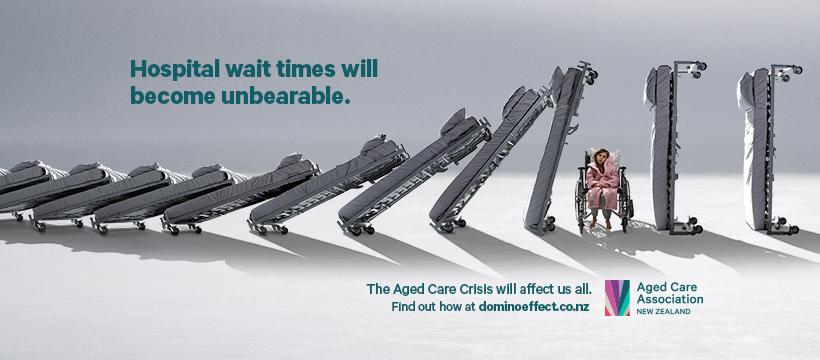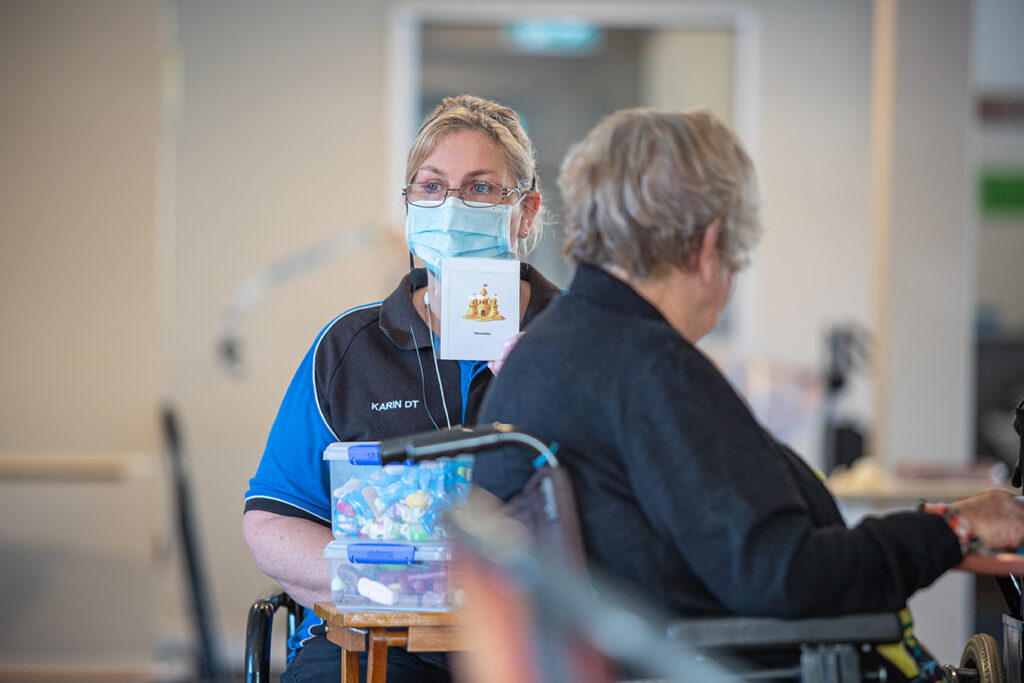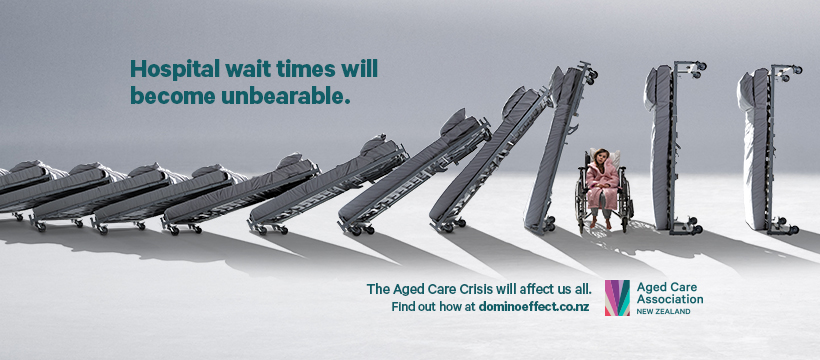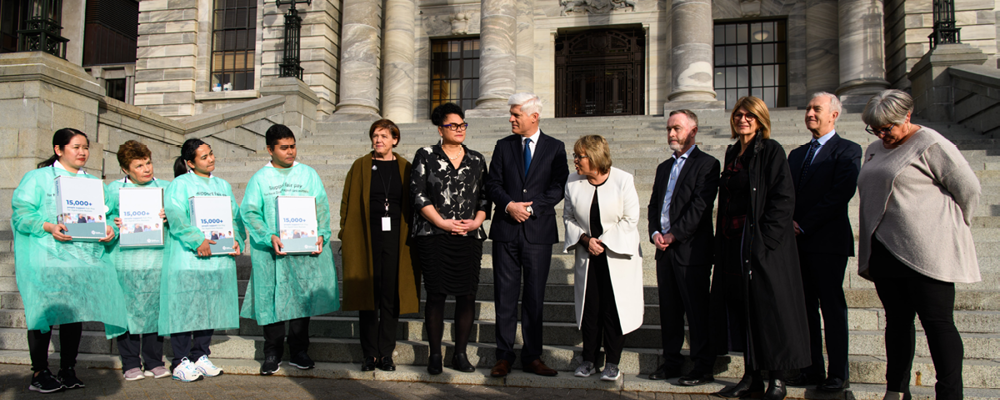The Aged Care Association has today launched a multiplatform campaign to urge the government to fix the aged care crisis. ‘The Domino Effect’ campaign features aged care beds crashing down like dominos on everyday Kiwis, to highlight the impact that chronic underfunding of the aged residential care sector has on all New Zealanders.
ACA interim chief executive Katherine Rich believes it is crucial that Kiwis take note, because the aged care crisis affects us all. For those working in the sector and families who have loved ones requiring residential aged care, the worsening issues come as no surprise, however many New Zealanders will be unaware of how the crisis affects the health system and will impact them. The Domino Effect campaign helps to join the dots and raise awareness.
“Almost daily we are hearing stories regarding long wait times in Emergency Departments, elective surgery wait times growing and wards overflowing with patients. This is all linked to aged care. Funding the aged care sector properly would improve the whole health system,” says Rich.
Aged care has been chronically underfunded by successive governments, resulting in a lack of capital investment in facilities. This comes as the sector grapples with rising costs and an acute shortage of 1200 registered nurses. Many providers have had no option but to close beds, with a number closing their doors for good. In the past year, over 1000 beds have closed permanently and 1200 closed temporarily due to staff shortages. More closures are expected to follow.
“When beds and rest homes close, seniors stay in hospital longer as they have nowhere to go when discharged, and as a consequence are blocking beds for other patients,” said Rich. This situation will worsen as the number of older New Zealanders increases. By 2030, we will need 13,200 more beds. If current trends continue, we will have nowhere near that number.”
The Domino Effect campaign also shines a light on the families who are having to step in and provide care for their older parents, as well as their own children, while also juggling work commitments. It also highlights the ongoing impact on our health workers who bear the brunt of the overwhelmed and underfunded system.
“It makes it very challenging to attract and retain staff and we fear these valued health professionals will move overseas where conditions and pay are far better,” says Rich.
The Aged Care Association is asking New Zealanders to support the Domino Effect campaign and spread the word via social media to spur the Government into action.
“We know what is needed. With sustainable funding, we can provide solutions that will enable the aged care sector to support the health system, not overload it. The evidence supports this, and it makes good economic sense. We need the decision makers to make it a reality.”
To learn more about the crisis in aged residential care, show your support, and spread the word visit www.dominoeffect.co.nz
Click the image below to download a Facebook header pic

Click the image below to download a LinkedIn header pic


















